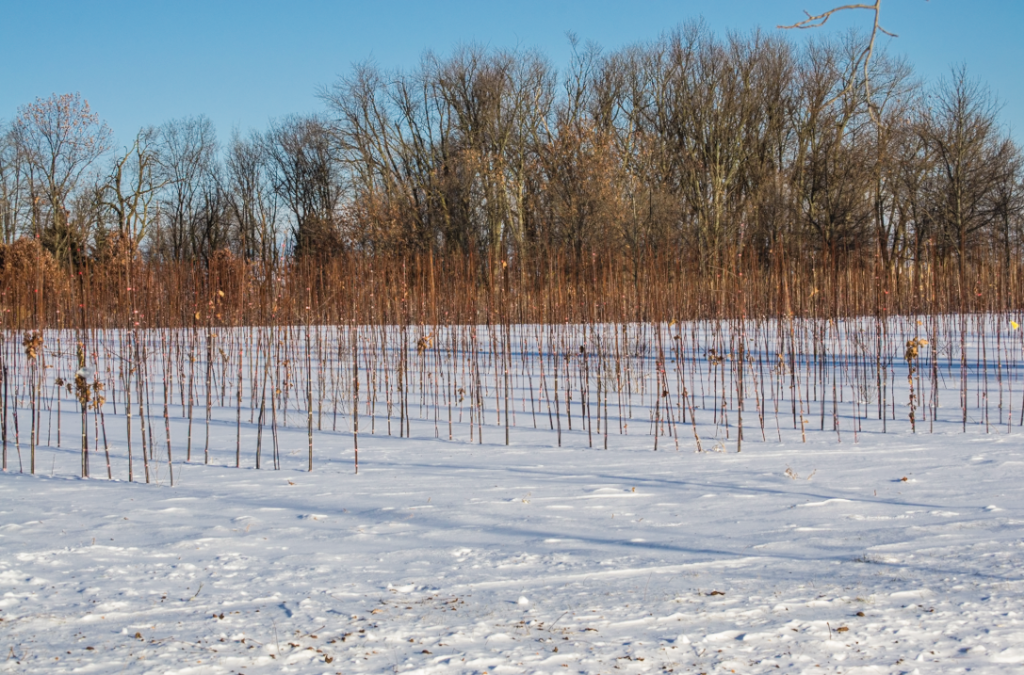Weaving together elements of fairytale and myth with elliptic narratives of family life and the psychological distress the quotidian brings us all, these haunting poems by Christine Hamm offer the reader a new way to read their own story: “You may think this is a metaphor, but/ it is the opposite.”

by: Christine Hamm
The Red Cap
1. My dad is frightened of getting caught or my grandmother coming back.
When I told my father I wanted a red sweater this Christmas, he shrieked.
Red is too girly, my parents say. I don’t say, but I am a girl. They ignore
what happened after I turned from girl to girl/wolf, after they locked me in
a cage under my bed for twelve years, dipping me headfirst into the river
for hours, sometimes weeks.
2. My mother and father forward emails demonstrating how even the word
girl is sour, sticky. Red disgusts them, makes their hands feel unclean. They
also fear bank cards being eaten by the ATM and the spaces planes cut
in the clouds. Sometimes they mutter about a woodsman, and leave plates
of roast beef and fresh corn out for him on the deck, hoping he’ll stay outside.
3. On the phone, my mother tells me she is not scared of my father. I hum
as I remember the 911 when he slammed her against a wall, against a door,
took a sword to her hair. The things she yelped as his teeth were in her face.
There is the path of needles, and the path of pins. My mother says she is not
scared of my father “anymore.”
4. My parents imagine deer smashing the glass doors and entering the house.
They are scared of this poem, and the ones that come after. They worry
about teenage girls with crooked mouths refilling their coffee cups, and
what’s really in that coffee. As they walk the poodle to the mailbox and
back, they fear what’s shadowing them, something that looks coyote or corpse.
Diary of a Deserter
Day 10. I feel like leaving all my books — they’ve turned into so much weight. I can’t even see
them as dreams or words anymore, just more pounds, more boxes.
Day 12. A female songbird, disguised as a sparrow, comes to my window. Or she comes to the
feeder near my window and watches me as I watch her. Her voice is different from sparrows, her
head covered in white stripes like a ragged river’s. Her whole body is the shape of a cardboard
toilet roll, ungainly. She lets me come out to the porch and sit before she pips and wheels
upwards.
Day 13. That time you said I love you too. In the library stacks, with the fraying books, the old
cedar book shelves. I still open old books to smear myself in the smell, though these words are
useless.
Day 16. Today I heard a buzzing call high above, like starlings warning, but it was crows. My
hearing is going, along with my patience. Most of my pills are white, yellow, or blue.
Day 17. I forgot one, and I couldn’t sleep for days, tore fur from the sides of my complaining
cats. I would like to sleep now. I would like to sleep in a river. On or under the water. I
dreamed of you again.
Day 20. Even the library is gone. I keep dreaming of going back, taking my classes again. But I
miss registration. Or I can’t find my classroom. So many things I stole and broke there, with the
books watching. I was naked most of the time, but no one saw me.
Landscape with War Spoils and Microbeads
In the backyard, a tv-sized bear lolls on his belly,
his porcelain skin covered with blue toile and
sudden roses. Sometimes he sits up and watches
me through the bedroom window. As he gestures,
the carpet of starlings screech and flutter skyward,
like a black tree taking flight. The fence I had the men
put up when I fell into the house has not grown, has
not warped or faded, has not acquired any natural
or supernatural qualities. The style was called “stockade”
in the brochure. You may think this is a metaphor, but
it is the opposite. A red and white cat striped like
a checkerboard appears and vanishes. He is a foot
larger than most cats and rubs his chin on my fist
when I squat down. Mornings after the rain, I have
to go out and dump the bird feed to the lawn; otherwise
the linnet and sunflower seeds swell, turn to pink soup.
I cannot find any history in the orange dirt or sandy
gladiolas, so I paint stories of tribes walking into the
poisoned river, of the girls whose teeth glowed like radium
watches. Sometimes, the Boeings overhead roar like an accident getting closer.
Christine Hamm lives and teaches in New Jersey. She recently edited an anthology of creative works inspired by Sylvia Plath called “Like a Fat Gold Watch.” Her work has been featured in Denver Quarterly, Nat Brut, Painted Bride Quarterly, New Orleans Review, and many others. She has published six chapbooks, and several books — her fourth, Girl into Fox, is coming out in 2019.






It is now about one minute after I read the three poems. I’m confused. The photo at the top is apposite. It shows a room full of stuffed animals. Stuff. I am of the opinion that the poet is crazy. Brilliant, but crazy. Like anyone who is anyone nowadays. The poems are sticky like peppermint candy canes that have been well licked. I’m not sure I like them but I’m not bored. That is praise. Poetry should be like surreal, opening doors to the unconscious processes of the psyche. If I read them again I’ll either be more confused, less confused, or the same confused.
It is now twenty four hours since I read the three poems and I’m less confused. The poet is doing her job, which is to prompt thought, emotion, questions about consciousness…and…to make beauty. One thing I’m confident about is her honesty. What is the opposite of a metaphor? A literalism? Are checkerboards striped? Why am I the only commenter? If I had some poems published I would want comments. I would want to know there’s a human audience, that readers are participating in the poetry. I hate the feeling that I’m writing into a vacuum. That’s why I’m doing this. Christine Hamm is thoughtful, creative, original. She’s not writing into a vacuum.